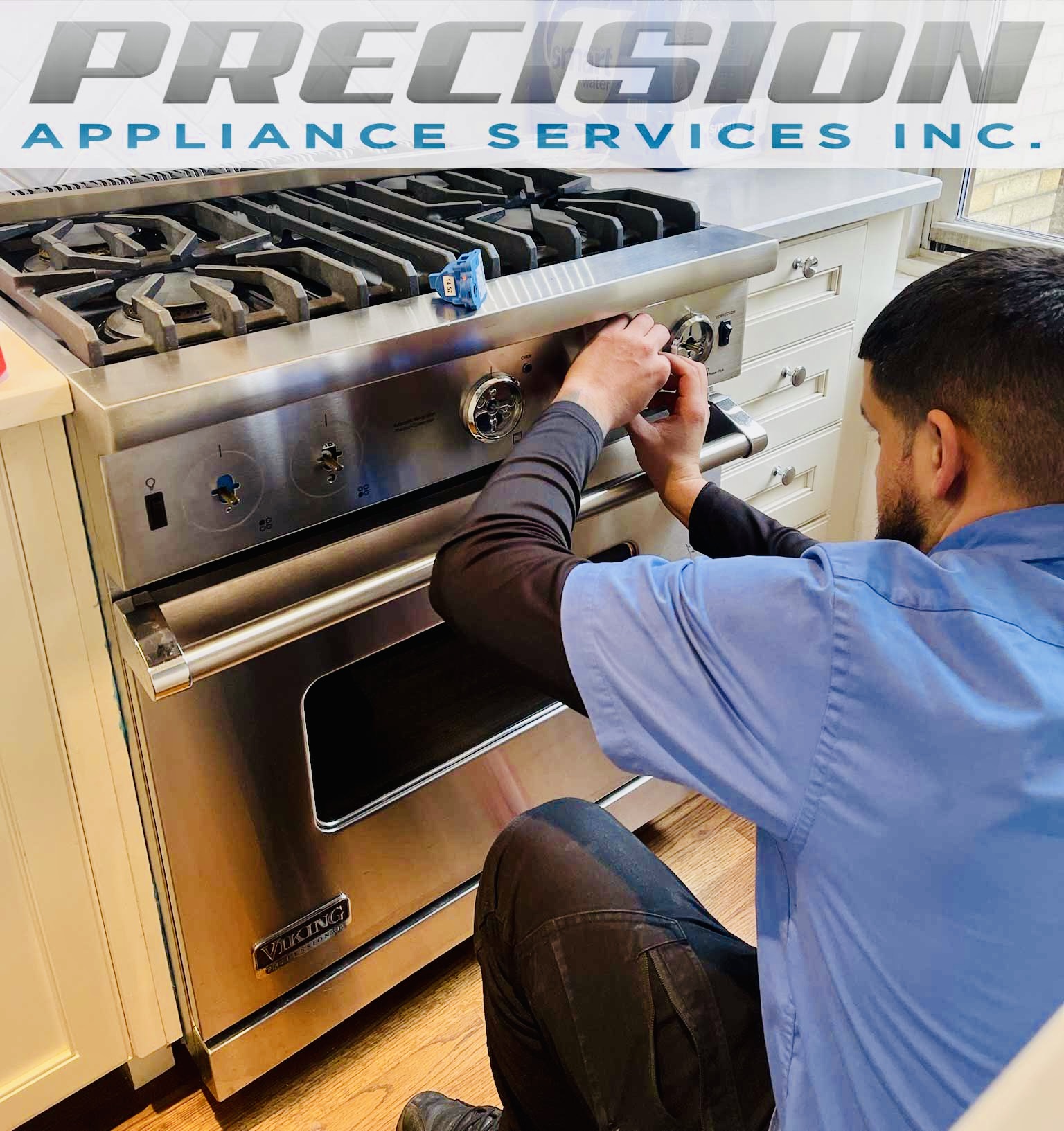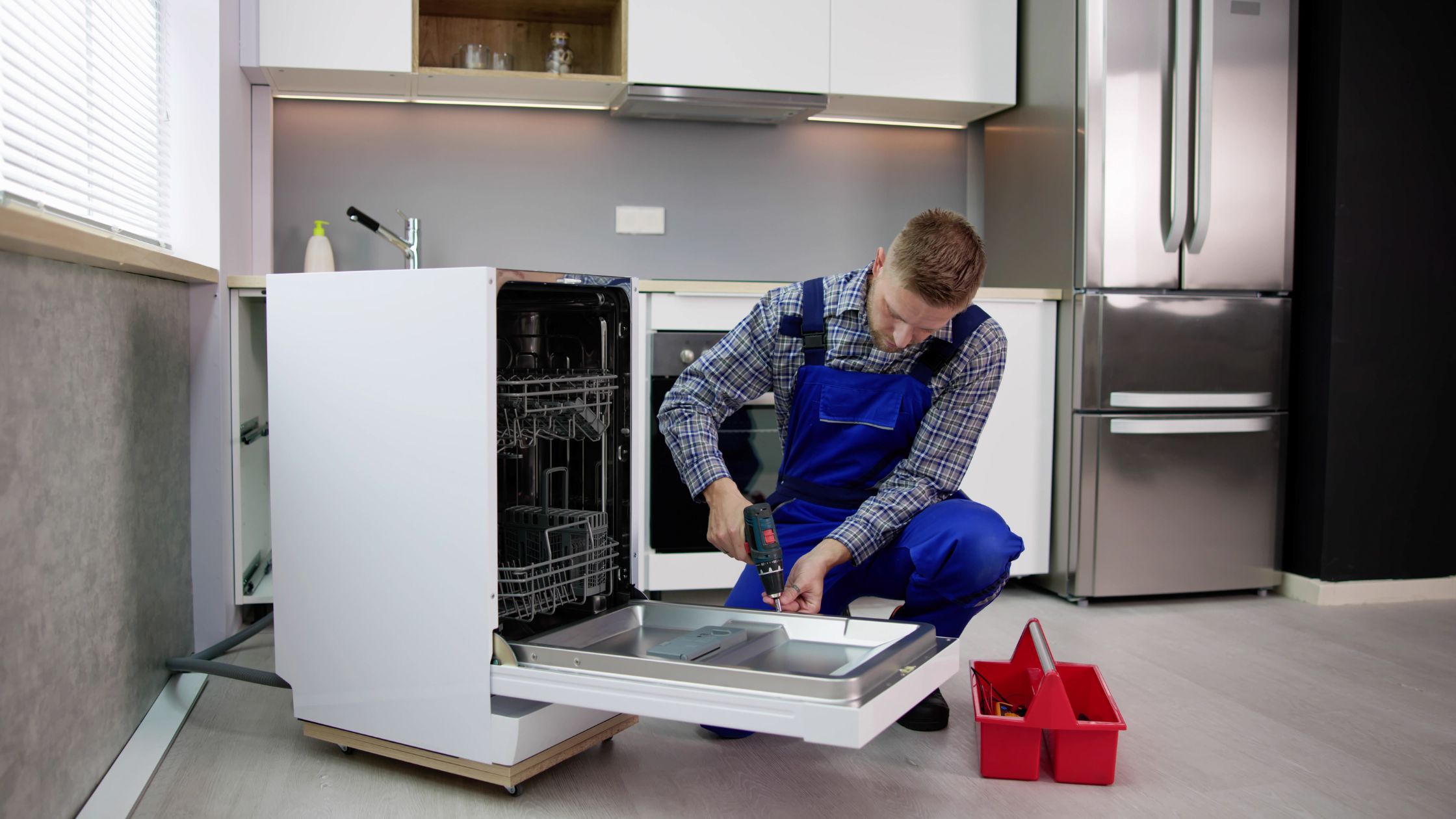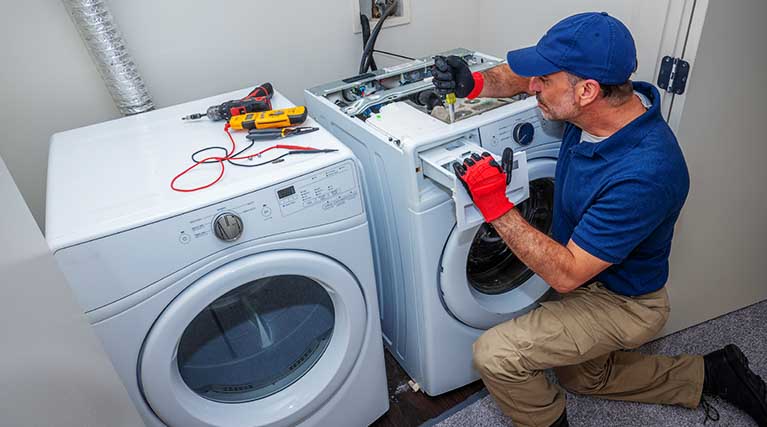The Ultimate Guide to Understanding Device Repair at Home
When your refrigerator stops cooling or your oven declines to warmth, it can really feel frustrating. Understanding home appliance repair work in your home can save you money and time. You'll find out to identify signs and symptoms, make use of important tools, and comply with an organized troubleshooting procedure. Prior to you start, there are important security preventative measures you need to take into account. What are one of the most typical issues, and exactly how can you fix them? Let's explore the basics.
Usual Home Appliance Issues and Their Symptoms
When your appliances begin breaking down, it's important to acknowledge the signs early on. Ignoring them can bring about bigger issues and costly fixings. If your fridge isn't cooling properly, you could discover cozy areas or condensation developing. This could show a failing compressor or an obstructed vent.Your dishwashing machine may show issues via unclean meals or uncommon sounds throughout cycles. If you hear grinding or clanking, it's time to investigate.A cleaning maker that will not spin or drain can leave you with soggy washing, recommending a blocked drainpipe or a malfunctioning pump.Lastly, if your stove's temperature seems off or it takes for life to preheat, you could be managing a damaged thermostat. By staying alert to these symptoms, you can deal with issues prior to they intensify into major repairs.
Necessary Tools for Device Repair Service
When you're dealing with appliance repairs at home, having the right devices is important. Standard hand tools like screwdrivers and pliers will help you take apart and take care of various appliances, while electric screening tools ensure you're working safely with circuitry. Allow's discuss what you need to start on your repair service trip.
Standard Hand Tools
Having the right devices is crucial for effective home appliance fixing in the house. Start with a reliable screwdriver collection, consisting of both flathead and Phillips kinds, as screws prevail in appliance setting up. Pliers are likewise important; they aid with gripping, twisting, and reducing cables or small parts. A pair of needle-nose pliers can get to difficult situations conveniently. You'll need a good flexible wrench for tightening or loosening up nuts and screws. An utility blade comes in handy for cutting with packaging or insulation. Lastly, don't fail to remember a durable workbench or surface to securely arrange your devices and parts. With these standard hand tools, you'll be well-prepared to tackle most device fixings that come your method.
Electrical Screening Tools
Alongside fundamental hand tools, electrical screening devices play a necessary role in device repair. These devices aid you diagnose electric concerns and assurance appliances operate securely. A multimeter is essential; it gauges voltage, current, and resistance, enabling you to pinpoint issues swiftly. A non-contact voltage tester is another must-have, letting you find real-time wires without making straight get in touch with, enhancing your security. Clamp meters are terrific for determining existing circulation in cables without separating them, conserving you time and effort. Additionally, circuit testers can rapidly check if outlets are working correctly. By utilizing these gadgets, you'll enhance your troubleshooting process and improve your repair work skills, making appliance maintenance a great deal much easier.
Step-by-Step Guide to Diagnosing Appliance Issues
When your device breaks down, it can be discouraging, but diagnosing the concern does not need to be overwhelming. You'll learn to identify usual troubles and use effective fixing techniques. Let's stroll via the actions to obtain your device back in working order.
Common Appliance Troubles

Fixing Techniques Discussed

Fixing Significant Kitchen Appliances: A Closer Look
Have you ever wondered just how to deal with typical issues with your cooking area home appliances? Fixing major cooking area devices like refrigerators, ovens, and dish washers can be much easier than you assume. Start by recognizing the trouble-- whether it's a fridge not cooling down or a stove that won't heat. Frequently, a simple reset or inspecting the source of power can resolve the issue.For fridges, tidy the condenser coils and examine the door seals. If your oven's not home heating, inspect the heating aspect and thermostat. Dishwashers may simply require a tidy filter or a reset to obtain them back at work. Always disconnect the device before diving into repair services to guarantee your safety.Don' t forget to seek advice from the user manual for certain repairing ideas associated with your model. With a bit of perseverance and the right devices, you can confidently tackle home appliance fixings and save money in the process!

Repairing Laundry Equipments: Tips and Techniques
When your washing devices start acting up, it can feel overwhelming, but repairing them does not have to be a hassle. Begin by inspecting the power supply. Confirm the appliance is connected in and the electrical outlet is functioning. Next, evaluate the door or cover switch; a damaged switch can avoid the machine from operating.For washing machines, if it's not spinning, look for out of balance loads. Redistributing the clothes may solve the concern. If your dryer isn't heating, clean the dust filter and inspect the air vent for blockages.Listen for uncommon noises; they can indicate an issue. If your home appliance is dripping, inspect the pipes for cracks or loose connections. File any type of mistake codes presented on electronic displays, as they can lead you in identifying the issue. Seek advice from the individual guidebook for specific repairing pointers connected to your design.
Safety And Security Preventative Measures to Take Throughout Repair works
Before you start any device fixings, it's crucial to focus on safety to stop mishaps or injuries. Disconnect the home appliance or turn off the circuit breaker to guarantee no power reaches it while you function. Usage protected tools to lessen the danger of electric shock. Wear safety and security goggles and gloves to protect yourself from sharp sides or debris (Dependable Refrigeration & Appliance Repair Service Washing Machine Repair).Make certain your workspace is clean and well-lit, so you can see what you're doing. Keep youngsters and pets far from the area to avoid distractions and possible hazards. If you're managing gas appliances, be additional careful; look for leaks before proceeding.Take your time, and do not rush with fixings. If you feel unclear regarding any step, it's far better to stop briefly and study than to guess. Complying with these preventative measures will aid create a much safer setting for your DIY appliance repair service task
When to Call an Expert for Assistance
Exactly how do you recognize if it's time to contact an expert for home appliance repairs? If you've attempted standard troubleshooting without success, it's a clear sign. If ge microwave fuse replacement your device still click now will not begin or shows unusual sounds after resetting it, do not hesitate to look for expert help.When you see leaks, smoke, or melting smells, focus on security and call a pro quickly. These concerns can lead to more substantial damage or position risks to your home.Also, if your appliance is under service warranty, contacting an expert is usually the ideal course. They can assure that repair work won't invalidate your service warranty, conserving you money in the long run.Finally, if you're unclear or uncomfortable with intricate fixings, it's important to leave it to the professionals. Remember, tackling difficult problems without the appropriate expertise can lead to costly blunders. Count on an expert when in question!
Frequently Asked Concerns
How Can I Prevent Device Troubles in the Future?
To avoid appliance issues in the future, you should perform normal maintenance, check for damage, clean filters, and prevent overloading. Staying aggressive will certainly assist extend their lifespan and maintain them running smoothly.
What Are the Most Usual DIY Home Appliance Repair Work Mistakes?
You might ignore safety preventative measures, avoid repairing steps, or utilize wrong devices when attempting do it yourself appliance fixings. Hurrying the process or neglecting manufacturer guidelines can bring about even more significant problems and pricey mistakes. Remain person and notified!
How Do I Know if a Part Demands Replacement?
You can inform if a component needs replacement by inspecting for uncommon noises, leakages, or irregular efficiency. If the appliance battles to operate properly or shows noticeable damages, it's most likely time for a substitute.
Can I Use Generic Parts for Home Appliance Services?
Yes, you can utilize common parts for home appliance fixings, but determine they work - Dependable Refrigeration & Appliance Repair Service Washing Machine Repair. Common components could save you money, yet they could impact performance or durability, so weigh your choices meticulously before choosing
What Guarantees Cover Appliance Repair Works?
A lot of device guarantees cover repair services for producing flaws, yet they typically exclude damage from misuse. Examine your warranty terms very carefully, as some may require making use of qualified technicians and initial parts for protection to stay valid.